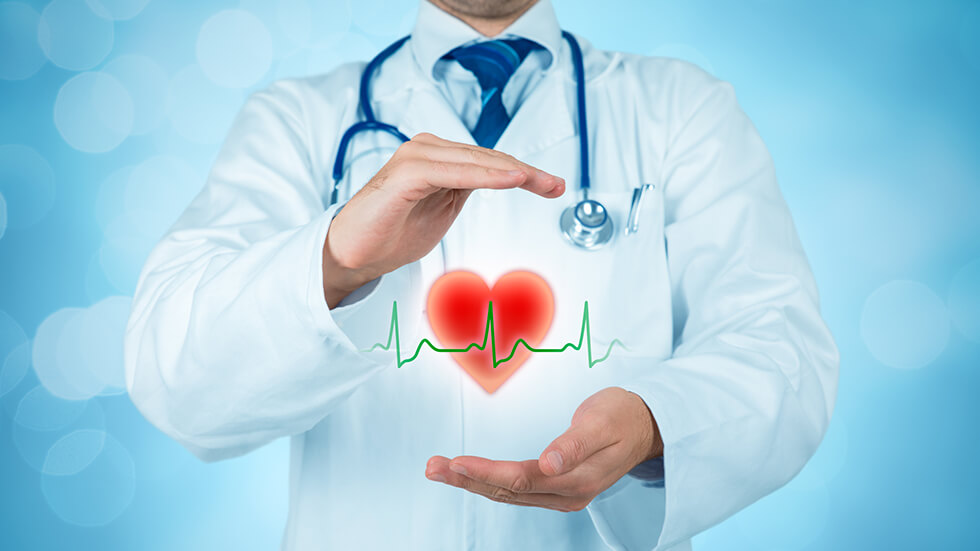Heart attack occurs when a part of the heart muscle does not get adequate blood flow. Heart attack treatment can limit this damage and dramatically improve your condition. Knowing about the available treatment options can help you understand your treatment plan in a better way when you talk with your doctor.
It is equally important to recognize the symptoms of heart attack. If you suspect symptoms such as chest discomfort, or shortness of breath, call emergency medical services immediately. This is important even if you’re not sure that it’s a heart attack. In hospital, a medical team runs tests and gives you the best heart attack treatment.
Common Treatments for Heart Attack
The goal of these treatments is restoring blood flow to the heart. The common options include-
- Medications- Heart attack recovery may include taking medications such as anticoagulants, beta blockers, anti-platelet agents or more depending on the situation. Anticoagulants effectively manage certain heart related conditions. Cholesterol-lowering medications are also recommended to reduce the chances of heart attack in future.
- Percutaneous coronary intervention (PCI)- The goal of this heart attack treatment is to open narrowed or blocked artery and restore blood supply to the damaged tissue. One of the most common methods to achieve this is deployment of a stent to keep the narrowed artery open during the procedure.
- Coronary artery bypass surgery- If PCI fails to clear the blockages and/or doctor finds high-grade blockages in any of the major coronary arteries, heart bypass is recommended. It diverts blood around narrowed areas of the major arteries so that the blood flow to heart can be improved.
Your healthcare team works with you and develops a heart disease treatment plan to improve your condition and prevent heart attack in future. The doctor also talks to you about lifestyle changes that help you prevent more heart problems.
Lifestyle Changes – Steps towards recovery and improved heart health
Making these changes helps you reduce your chances for having another cardiac event and feel better overall-
- Taking your medications – Taking prescribed medicine is important for your recovery and ongoing health. Medicines are needed to be taken exactly as prescribed to work most effectively. Even if you are feeling better or your risk factors are under control, you should continue taking medicines as prescribed.
- Eating healthy – Replace unhealthy foods with fresh fruits and vegetables, legumes, nuts, whole grains and more healthy items. Physical activity also helps you restore your heart health.
- Controlling your risk factors- Check your risk factors such as high cholesterol, high blood pressure and diabetes and take necessary steps to bring them under control.
- Attending follow-up appointments- This helps your medical team keep track of your medical condition. The team supports you to ensure that you recover safely and appropriately.
Protecting your heart health is not difficult- It takes some simple, healthy steps to prevent another heart attack after your heart disease treatment. Eating a healthy diet, doing physical activity and controlling your risk factors—in addition to taking your medicines correctly—can significantly improve your heart health and quality of life.
References-
- https://www.ncbi.nlm.nih.gov/pmc/articles/PMC6366680/#:~:text=Heart%20attacks%20(also%20known%20as,750%2C000%20occurring%20annually%20(2)
- https://www.ncbi.nlm.nih.gov/pmc/articles/PMC4000924/
- https://www.heart.org/en/health-topics/heart-attack/treatment-of-a-heart-attack
- https://www.ncbi.nlm.nih.gov/books/NBK556123/#:~:text=Percutaneous%20coronary%20intervention%20(PCI)%20is,supply%20to%20the%20ischemic%20tissue.
- https://www.ncbi.nlm.nih.gov/books/NBK507836/
- https://www.heart.org/en/health-topics/heart-attack/life-after-a-heart-attack
- https://www.cdc.gov/heartdisease/heart_attack.htm


